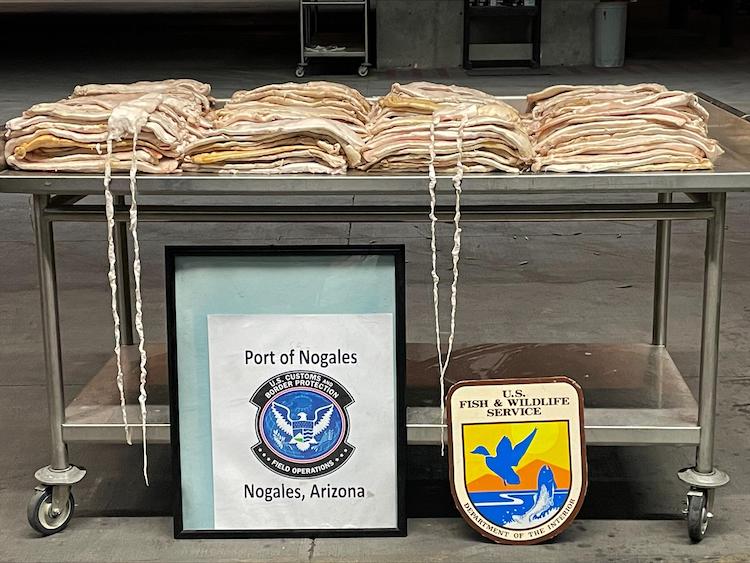- Home
- The Arizona News
- Second Largest Seizure of Totoaba Swim Bladders By Arizona CBP Officers

Second Largest Seizure of Totoaba Swim Bladders By Arizona CBP Officers
U.S. Customs and Border Protection (CBP) officers at the Area Port of Nogales seized 242 pounds of Convention on International Trade in Endangered Species of Wild Fauna and Flora (CITES) and Endangered Species Act (ESA)-protected Totoaba swim bladders with an estimated value of $2,700,000.00.
On April 13, 2023, CBP officers working at the Mariposa trade facility discovered 270 swim bladders of the endangered Totoaba fish which were concealed within a commercial shipment of frozen fish fillets. CBP officers contacted U.S. Fish and Wildlife Service (USFWS) who took possession of the bladders. Preliminary DNA testing by USFWS indicates that these bladders are the endangered species Totoaba macdonaldi endemic to the Gulf of California in Mexico. This seizure is thought to be the second largest seizure of its kind in the U.S. and the largest Totoaba seizure in Arizona, to date.
Totoaba fish have been listed as an endangered species under the U.S. Endangered Species Act since 1979. The swim bladders of this species and other similar species worldwide are prized in Traditional Chinese Medicine and as an Asian cultural delicacy. Because the species is federally protected, in both the U.S. and Mexico, it is illegal to take, possess, transport, or sell Totoaba. In addition, the gill-net fishing methods used to catch the Totoaba have resulted in the co-demise of another endangered species in the Gulf of California, the Vaquita porpoise, Phocoena sinus.
USFWS and Homeland Security Investigations (HSI) are investigating the smuggling attempt of the prohibited item.
“Our officers and agriculture specialists enforce a wide variety of laws on behalf of numerous agencies”, said Tucson Field Office Director of Field Operations Guadalupe Ramirez. This find by our CBP Officers, potentially the second largest seizure of Totoaba swim bladders nationwide, is an exceptional example of the job they do enforcing laws regarding all commodities entering the United States. It’s also an excellent example of our working relationship with our US Fish and Wildlife partners, enforcing the Convention on International Trade in Endangered Species treaty agreement.
